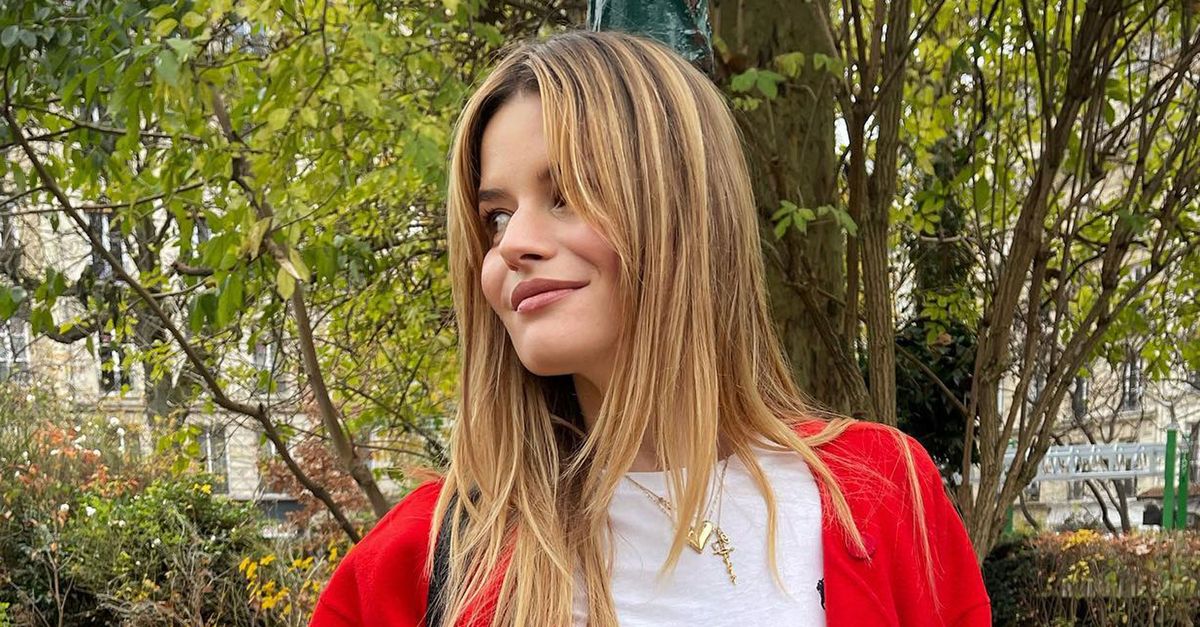Indigenous horror has become increasingly popular in recent years, particularly in Canada where efforts are being made to seek out, fund, and promote First Nation stories (see also: Slash/Back and the late Jeff Barnaby’s work like Blood Quantum and Rhymes for Young Ghouls).
With Seeds, we can add Kaniehtiio Horn’s name to the list. The multi-hyphenate is known for her acting work on series like Letterkenny and Reservation Dogs, but for her first feature, Horn takes up writing, directing and starring duties to tell the personal story of a Mohawk woman thrown into battle with a corrupt corporation.
Ziggy (Horn) is a late-twenty something living in Toronto. She’s an ambitious woman – hustling to carve out a spot as a social media influencer with cute videos of her and her cat Potato in between making a living as a food delivery woman.
A montage of these social media posts open Seeds with Horn employing split screen to cue the audience where to look. It’s an effective and energetic way to open the film, and immediately endears us to Ziggy, who is funny, a little goofy, and highly watchable. (The same can be said for Horn, whose onscreen personality is easily the best thing about the film).
Just when Ziggy thinks she’s hit it big with a brand endorsement gig for seed company Nature’s Oath, she called back to the reservation. Her cousin Wiz (Dallas Goldtooth, Reservation Dogs) is going fishing, so he needs her to look after her Aunty’s house while the woman is on vacation in New Zealand. And so Ziggy – and Potato – begrudgingly pack for an indeterminate stay on the rez.
These introductory scenes quickly and efficiently establish Ziggy as a person, as well as her relationship to her community. She talks proudly of her Mohawk heritage in her videos, and she easily falls back into a rhythm with her cousin, the attendant at the small rez convenience store, as well as Nookie (Dylan Cook), the dimwitted guy who runs the garage.
That easy familiarity doesn’t extend to one person: Ziggy’s ex-boyfriend Bandit (Meegwun Fairbrother), whose calls she always dodges and who is listed in her phone as “emotionally unavailable asshole.” The details of their conflict is parsed out over the course of the film, but the characters still maintain a flirtatious chemistry that is easy to root for.
The plot kicks into gear when it is revealed that Ziggy has been lured home by Nature’s Oath for one nefarious purpose: to steal her family’s legacy collection of unique corn, bean, and squash seeds. This isn’t entirely surprising since Horn includes POV stalking shots of a man in black watching Ziggy make the journey home, including her time back in Toronto. So when Canadian character actor Patrick Garrow appears as Drake, there’s no question who the bad guy is.
In The Eastern Door, Horn describes the film as a “home invasion comedy” inspired by Home Alone and Shaun of the Dead. There’s definitely elements of both films, but overall Seeds’ clear interest in comedy can be seen – for better or worse – throughout the entire film. Sometimes that balance between thriller and comedy works incredibly well, such as when Garrow’s character breaks in and encounters a pissed off Potato to violent, comedic effect.
But increasingly as the film progresses and the stakes escalate (C/W: the cat does die), Horn struggles to balance the tonal inconsistency between the jokes and the violence. The climax, which is teased by an early story about what the Mohawk do to their enemies, is incredibly bloody, but the interplay between quips and torture makes for an uneven viewing experience. There’s a point where Horn needed to pause the comedy because it is undercutting the catharsis of seeing Ziggy get revenge, but even in the darkest moments, little jokes sneak in.
There are a few other elements that don’t completely work. The FX is decent, but not wholly convincing (a severed ear looks pretty rubbery), and the staging of the fight sequences is more stagey-like than cinematic.
Most frustrating is the early inclusion of a social media post that is clearly from late in the film, after Ziggy has been roughed up. In this clip Ziggy names Nature’s Oath as an enemy of Indigenous people, but Seeds never revisits this moment. It spoils the moment when Ziggy realizes she’s in bed with the enemy, but its inclusion early in the film doesn’t benefit the plot at that point and, by not returning to it, it feels superfluous and unnecessary. It’s a baffling creative decision and this brief scene should have been excised from the final cut.
Despite some first feature wobbles, Seeds is entertaining and highly watchable. Horn’s performance as Ziggy is undeniably the high point: the character is fun, relatable, and extremely easy to root for. Even though she’s a bit of a struggling mess, Ziggy is incredibly endearing.
Like many Indigenous texts, the character’s relationship to cultural traditions and the land is paramount (the film is literally called Seeds and there is a repeated visual motif of Ziggy’s ancestral family working the land in gorgeous, golden-hued dream sequences). This extends to the chef’s kiss stunt-casting of Canadian Indigenous icon Graham Greene as the host of a true crime series (and her dreaming spirit guide) .
Overall, Seeds works better as a comedy than a revenge thriller, though seeing Ziggy fight back against white colonial oppression is cathartic and empowering. In that capacity, Seeds offers something unique and completely accessible to audiences who are less familiar with (particularly contemporary) Indigenous narratives.
At its core, Seeds is a mostly fun, slightly inconsistent comedy revenge thriller with a truly great lead performance by Horn.
Seeds has its World Premiere at TIFF 2024.


























































![Mason Ramsey – Twang [Official Music Video] Mason Ramsey – Twang [Official Music Video]](https://i.ytimg.com/vi/xwe8F_AhLY0/maxresdefault.jpg)





![‘Seeds’ Review – Indigenous Comedy Thriller Is Fun, But Inconsistent [TIFF] ‘Seeds’ Review – Indigenous Comedy Thriller Is Fun, But Inconsistent [TIFF]](https://i0.wp.com/bloody-disgusting.com/wp-content/uploads/2024/07/Seeds-First-Look-1.jpg?resize=1000%2C582&ssl=1)












:quality(85):upscale()/2024/05/10/773/n/1922564/c9a7f14c663e5a5ed827b3.90845521_.jpg)






